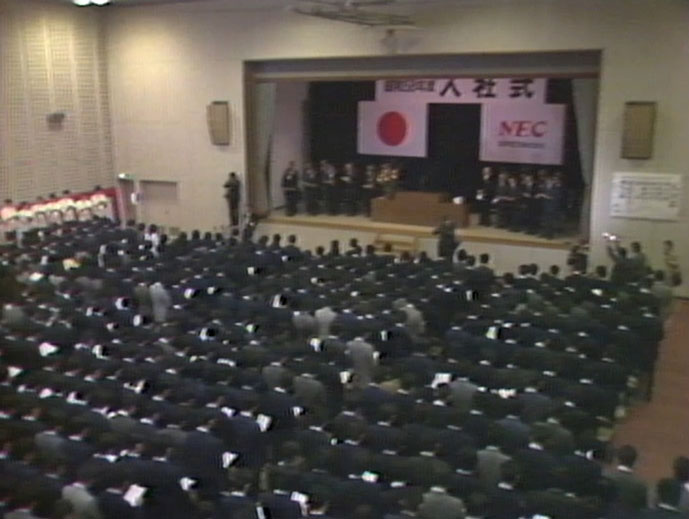The head of the top business lobby group, Keidanren, recently became the latest person to declare lifetime employment unsustainable. In guidelines for the approaching spring wage negotiations between labor groups and management, Keidanren has urged businesses to embrace a new approach to work.
A familiar script
For decades, careers in Japan have followed a familiar pattern that starts when fresh university graduates enter a company, and ends roughly four decades -- and many seniority-based pay increases -- later at the same firm.
Keidanren says this system had its advantages in an era when companies mass-produced cheap, high-quality goods, and didn't need to consistently innovate. The annual recruitment process allowed managers to train new hires in a way that suited their manufacturing processes.
For workers, the benefits were equally obvious. Job security afforded them the freedom and confidence to make life plans.

Left behind by a changing world
But in recent decades, globalization has exposed major failings in the system. One of the biggest, critics charge, is that it breeds complacency at the expense of free-thinking and innovation.
Another is that it disadvantages women who leave their jobs to have children. When they return to the workforce, they tend to earn less than their contemporaries, regardless of how well they perform, because the pay raise system depends on length of service and not merit.
Globalization has also spurred a sharp increase in the movement of workers across national borders and intensified competition for their services. Keidanren warns that unless Japanese companies change, they'll struggle to attract the best.
Encouraging a rethink at the top
Tetsuji Ohashi is the vice chair of the organization. He concedes that "Japan's employment system has helped drive growth and has undoubtedly been a force for good." But he says "it now faces some challenges, and will be difficult to sustain"
Keidanren says businesses must be more flexible about who they hire and, in particular, should be willing to recruit more workers with experience from other companies. Pay increases should be based on merit, the group says, and not on seniority or years of service. Only by making these changes can companies evolve and succeed.
But change doesn't always come easy, and that's particularly so in Japan.
The country's biggest labor group, Rengo, has made it clear it will resist any attempt to overhaul the system. President Rikio Kozu blames growing economic disparity on a failure by management to raise wages across the board. He points out that already, 40 percent of Japanese workers aren't full-time employees and therefore don't have the benefit of lifetime employment. "We must not lose the best thing about Japan's workplace tradition, which is that it nurtures human resources."
Time for change
The sides are in agreement on one thing -- Japan's employment system is not working as it should, and something should be done to rectify that.

